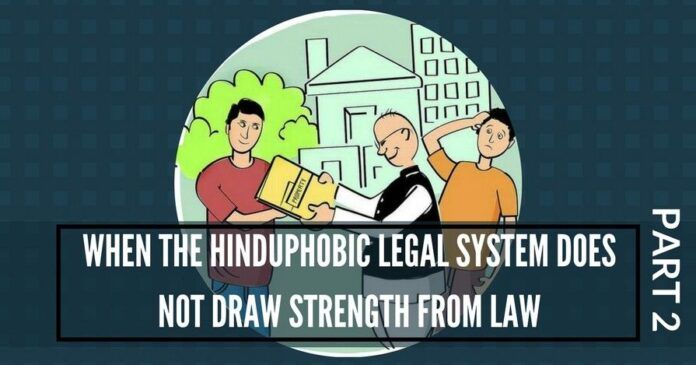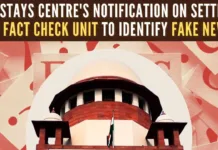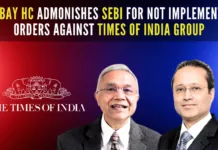
The Previous part of this article can be accessed here.
Murderer disqualified, but cultural “murderer” rewarded
Section 25 of the Act, titled “Murderer disqualified” disqualifies any person from inheriting a devolving property if he/she is a murderer (or abets such murderous acts) of the person whose property is devolving. Is murder only physical? If genocide can include cultural genocide, cannot murder include rejection of one’s own ancestors’ culture and beliefs. Is it not that the person rejecting the beliefs and culture of their ancestors committing symbolic murder? Is it not akin to rejecting them as fools and imbeciles for having followed something contrary to his own “better” beliefs? Is it not rejecting them as irrelevant? What right does he/she morally have to partake of profits (from inheritance) while rejecting and culturally murdering their ancestors’ identity-defining beliefs and practices?
In fact, the Hon’ble Gujarat High Court even went further to claim that the Act deals only with the religious identity of the one whose property devolves and not of the heirs. Is it sustainable when the Act explicitly defines who can be inheritors and what “class” or category of inheritors each of such heir is? What was the purpose of the Hon’ble Courts to go into what is religion, why people convert and what it means for individual’s spirituality? Such high brow philosophical speculations were unnecessary and uncalled for and will only lead to unnecessary debates on which religion is ideal for spirituality and so on. The list is endless. There is nothing wrong with such a debate in a healthy democracy. However, is it the forum for such debates and that too while deciding on the cases for adjudication on one’s personal laws?
Why is there is no mechanism for compensation and corrections in the court processes, akin to negligence and incompetence rules?
Negligence and incompetence
While many professions, especially the medical profession, are regulated by a strict application of established civil and criminal negligence standards, professional rules and regulations, and even statutory provisions, why not the Judiciary?
A doctor’s action at any given point in time is concerned with only one life. However, a court’s judgment affects not only the parties involved in the legal dispute in question but almost the entire population and even generations to come via the principles of precedence and such.
Then, why is there is no mechanism for compensation and corrections in the court processes, akin to negligence and incompetence rules? Is an appeal process sufficient? Can the judges sit in the judgment of their own brother judges actions? Is law somehow more complicated than the human body? Is the legal system and the judiciary above law? If so, why and how? Is it justifiable in this age and time?
Is democracy under threat? Yes, my lords… Is it by a long well-entrenched and an ongoing judicial coup? Is it by the increasing incidence of judicial Hinduphobia?
(Many thanks to Sri Ramaswamy Meyyappan for reviewing the draft)
References
Balchand Jairamdas Lalwant vs Nazneen Khalid Qureshi. 6 March, 2018 Live Law. Bombay High Court.
Sri Krishna Singh Vs. Mathura Ahir & Ors. 1979 AdvocateKhoj. Supreme Court of India.
- Priyanka Vadra continues the illegal abuse of Gandhi’s name and legacy - March 19, 2019
- Is secularism the other side of genocide and is it thus unconstitutional? - November 10, 2018
- Is Yogi’s government inadvertently putting the Kumbh Mela at subversive risk by Breaking India forces at Harvard et al? - October 17, 2018










